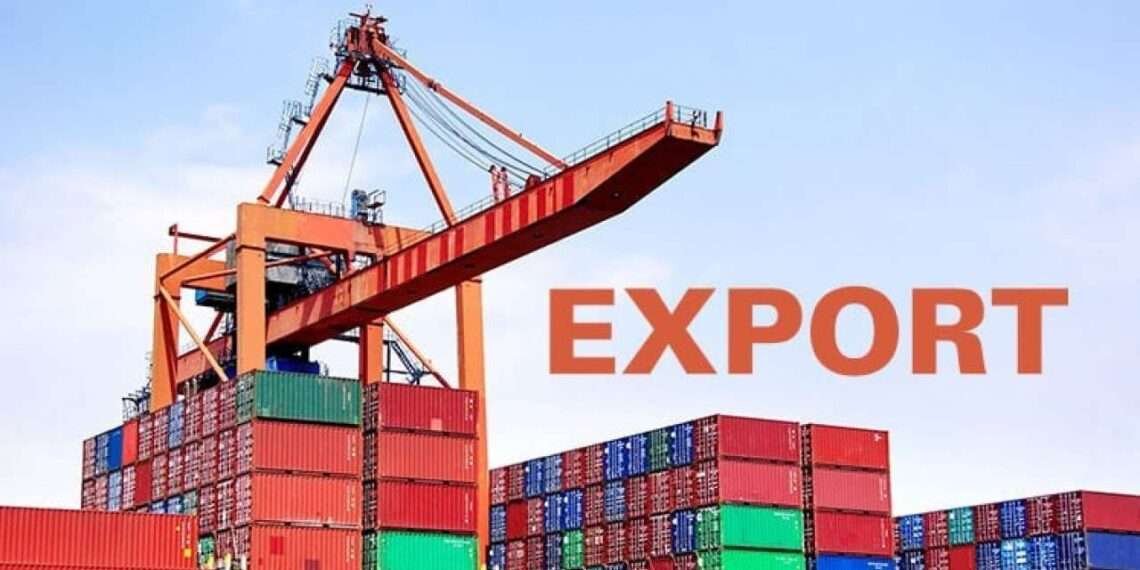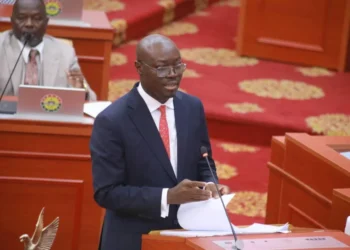Ghana has unveiled a plan to transform its export sector by tripling the country’s non-traditional export (NTE) earnings from $3.5 billion to a projected $10 billion annually by 2030.
This ambitious target was announced by President John Dramani Mahama during the inauguration of the newly established Accelerated Export Development Committee (AEDC), tasked with spearheading the country’s export growth strategy.
Speaking at the inauguration ceremony, President Mahama emphasized the urgent need for Ghana to move away from the over-reliance on raw material exports and adopt a diversified and value-added export model. He explained that the AEDC was conceived as a high-level platform to coordinate policy, drive strategic coherence, and ensure institutional accountability in the country’s export development efforts.
“The AEDC has been established to serve as a high-level platform for strategic coordination, policy coherence, and institutional accountability in our export development efforts. Our strategy is ambitious but deliberate.”
John Dramani Mahama
The committee, comprising 18 members drawn from various sectors, will oversee the implementation of the Accelerated Export Development Programme (AEDP) and the National Export Development Strategy (NEDS), both designed to bolster Ghana’s competitiveness in global markets.
Moving Beyond Raw Material Exports
Currently, Ghana’s export portfolio remains dominated by low-complexity raw commodities such as gold, cocoa, cashew, and timber—most of which are exported in their raw state with minimal value addition. This export pattern has limited the country’s capacity to fully reap the economic benefits associated with industrialization and global trade.
“We must change this narrative,” President Mahama urged. “We can no longer afford to rely on exporting raw materials. Value addition is the only path toward sustainable economic transformation and wealth creation.”
By promoting agro-processing, light manufacturing, and high-value service exports, the new strategy aims to boost job creation, increase foreign exchange inflows, and ensure long-term economic resilience.
To support the ambitious export targets, President John Mahama also announced a comprehensive plan to modernize Ghana’s trade infrastructure. He acknowledged that exporters face some of the highest logistics costs in West Africa and experience long clearance times, which reduce the competitiveness of Ghanaian products in international markets.
“We will therefore modernize our ports, revamp the Volta Lake Transport Company, develop the Mpakadan Port, operationalize the Bankra Inland Port, and expand the cold chain infrastructure to support our fisheries and horticultural sectors.”
President John Mahama
These infrastructure improvements are expected to ease transportation bottlenecks, reduce post-harvest losses, and enhance the efficiency of trade flows, particularly for exporters based in remote parts of the country.
Enhancing Export Readiness Across Sectors
The government’s renewed focus on exports is also expected to benefit several sectors, especially agriculture and manufacturing. The AEDC will work closely with the Ghana Export Promotion Authority (GEPA) and other key institutions to provide capacity building, market access support, and financing options for small and medium enterprises (SMEs) that are critical to the country’s export ecosystem.
With an eye on the African Continental Free Trade Area (AfCFTA) and other regional markets, the strategy also includes aggressive promotion of Ghanaian products abroad, investment in quality standards, and the development of export-oriented industrial parks.
As Ghana navigates complex economic challenges and seeks new avenues for growth, the non-traditional export sector is emerging as a key pillar in the country’s development agenda. The AEDC’s mandate aligns with broader national goals of industrialization, private sector empowerment, and sustainable job creation.
While the $10 billion target by 2030 is ambitious, the strategic framework now in place signals a deliberate and transformative approach to achieving it.
READ ALSO: Acting CJ’s Role in CJ’s Suspension Case Hearing Defended























